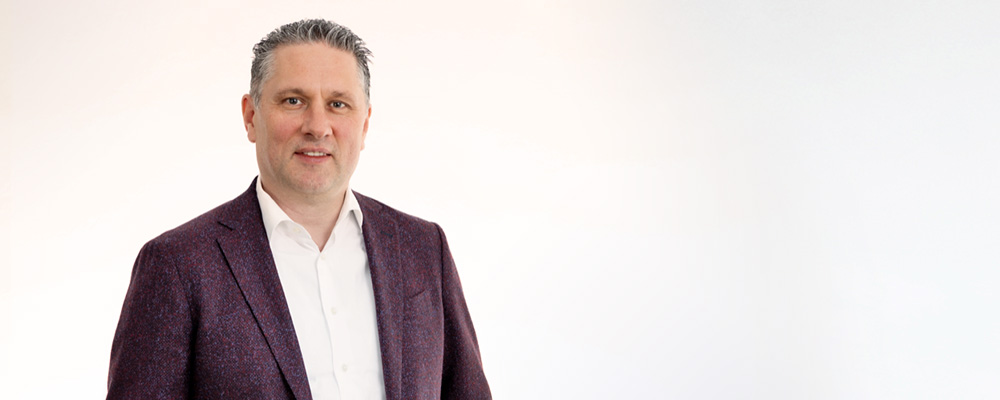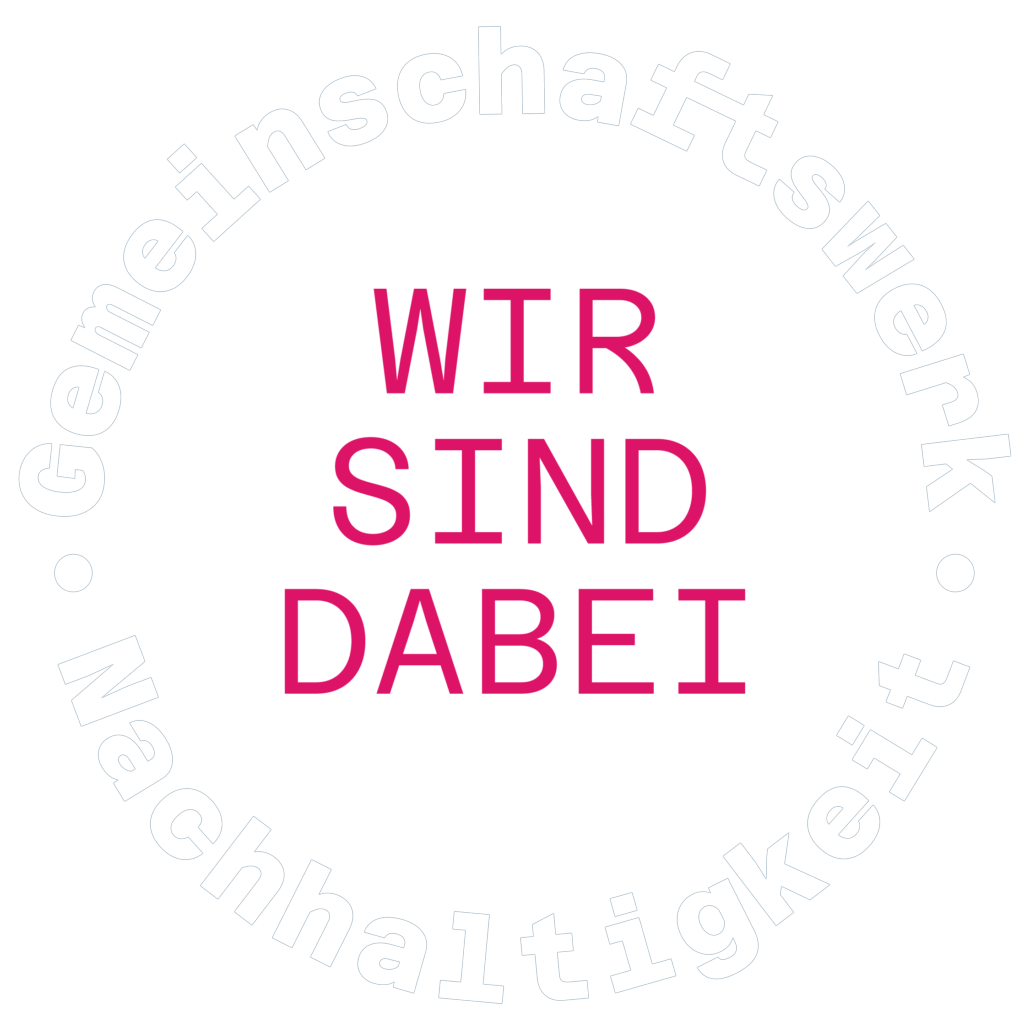Circular Material LAB – for the sustainable use of resources.
With the Circular Material LAB RITTWEGER + TEAM is committed to the sustainable use of resources and the transition to a circular economy by supporting companies in the conceptual development of material cycles and the use of reusable materials.
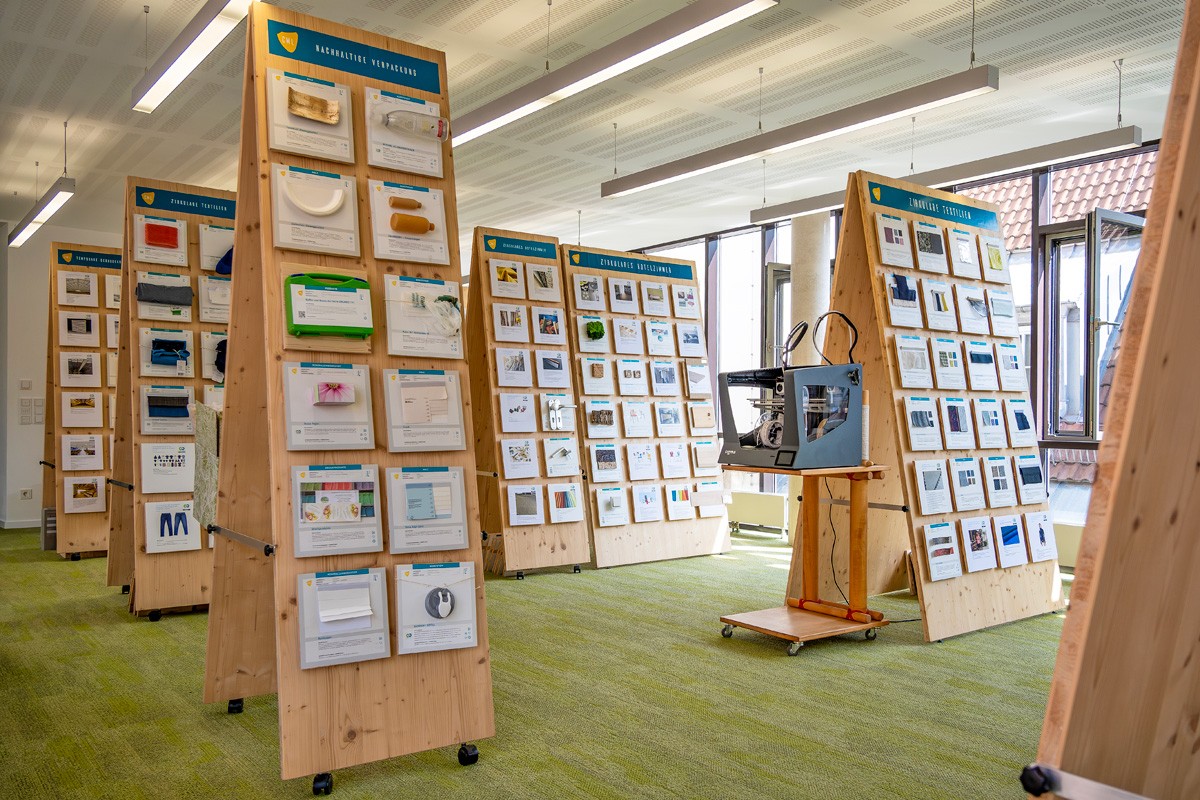
Grasping material cycles
The idea of the Circular Material LAB arose from our experience that getting to grips with things, in particular with materials and their cycles, can lead to a deeper understanding of ecological relationships. The linear economy is based on the one-way use of resources, which means that many companies and industries have lost their relationship with materials and their source. As a result, it is difficult in many areas to understand material cycles as a lasting source of prosperity for society as a whole. However, sustainable resource utilisation is crucial for the transition to a climate-neutral society.
A material library to touch, feel, test and combine
We firmly believe that a well thought-out material cycle concept and the right choice of reusable materials make a significant contribution to overcoming the challenges of sustainable transformation in companies – our Circular Material LAB is the tool for this. The circular economy is an important part of the EU Green Deal, which aims to reduce environmental pollution and mitigate the effects of climate change. A quick understanding at all process levels is the basis for a successful transformation. With this motivation in mind, we launched the LAB project in 2015 and offer a material library with over 400 available materials that are suitable for the circular economy.
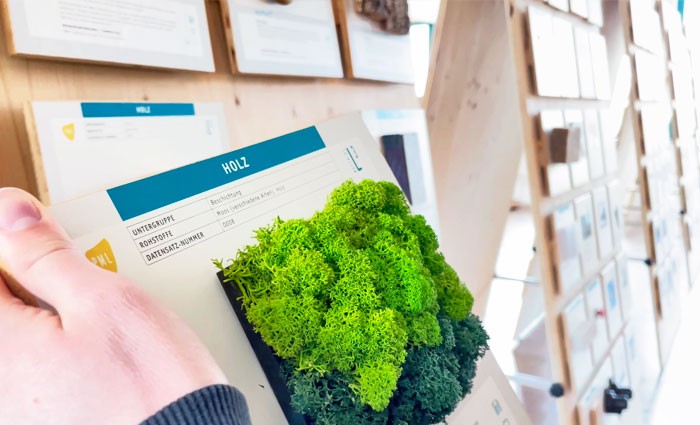
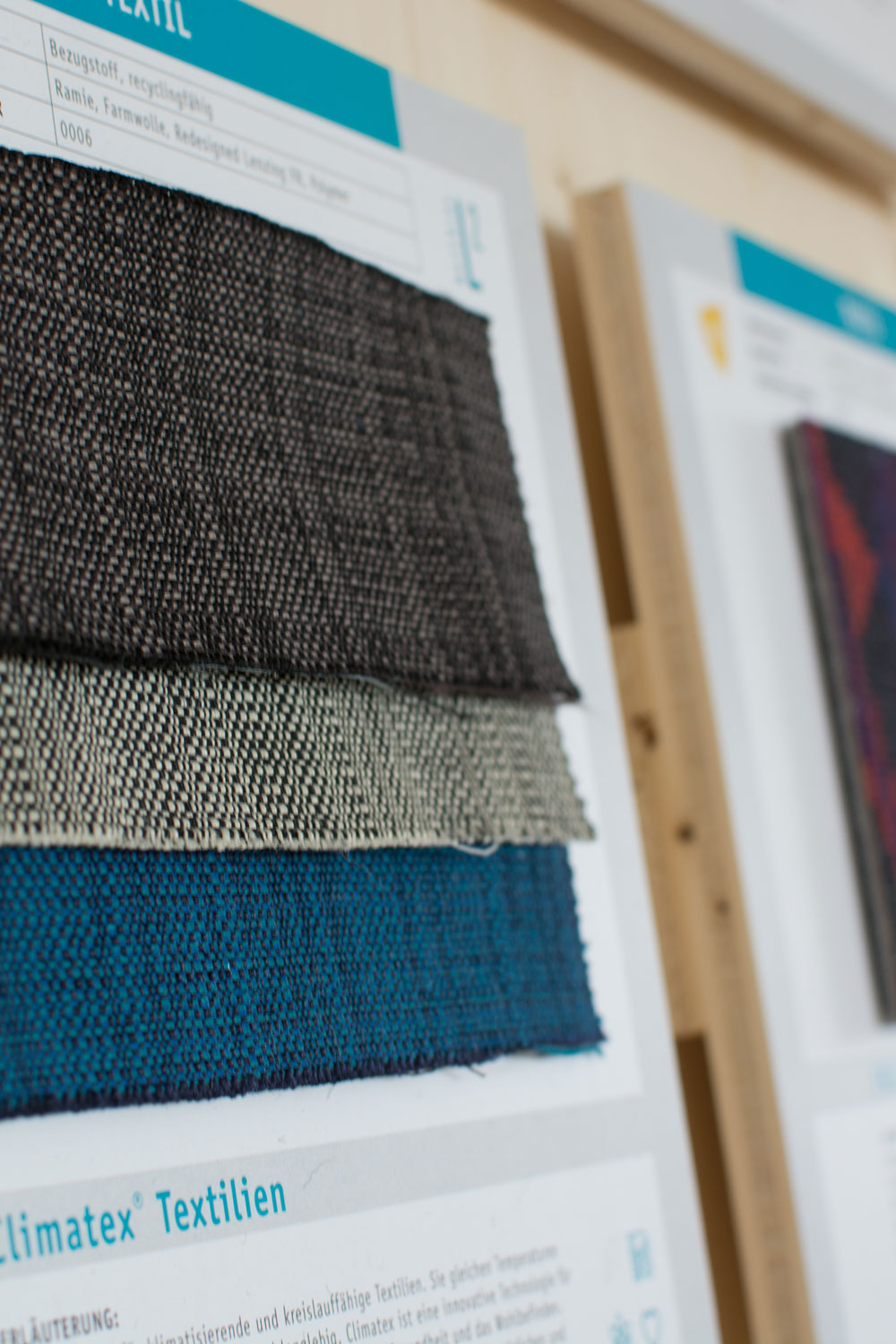
In the Circular Material LAB we can:
Bring together interdisciplinary material innovations.
Accelerate decarbonisation at the material level.
Provide material innovators with a multiplicative platform.
Generate new perspectives on materials in decarbonisation.
Make the value of material health, circularity, social standards, water consumption, and energy consumption visible.
Establish a foundation for circular design and construction and support the exchange of knowledge and experiences.
Good to know.
Circular Economy and the EU Green Deal
The circular economy, which aims to utilise resources in a sustainable and climate-friendly way, is an important component of the EU Green Deal, which has set itself the goal of achieving a net-zero emissions balance for the European Union by 2050. However, the EU Green Deal also includes measures to improve air and water quality, promote the circular economy and strengthen biodiversity. In this sense, the circular economy is an important building block for an environmentally friendly and sustainable society.
